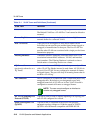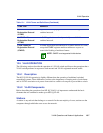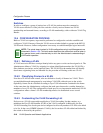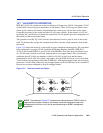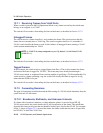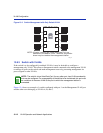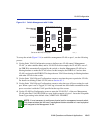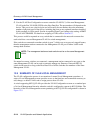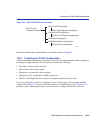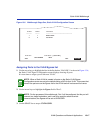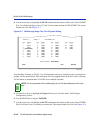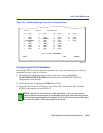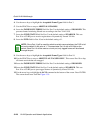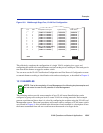
Summary of VLAN Local Management
13-14 VLAN Operation and Network Applications
5. Use the VLAN Port Configuration screen to enter the VLAN ID, 2, of the new Management
VLAN as the Port VLAN ID (PVID) to the Host Data Port. The port number will depend on the
device. This port is not a physical port and will usually be one number above the maximum
number of physical ports on the device, including the ports on any optional interfaces installed.
In this example, it will be port 8. Set the Acceptable Frame Types setting to the setting: ADMIT
VLAN ALL FRAMES. For details on assigning a PVID, refer to Section 8.7.
This process would be repeated on every switch that is connected in the network to ensure that
each switch has a secure Management VLAN for switch management.
If the switch was connected to another switch via port 7, which was set to pass only tagged frames,
then the management station connected to the Management VLAN port of either switch could
manage both switches.
No matter how many switches are connected, a management station connected to any port on the
same Management VLAN can be used to remotely manage any Enterasys Networks 802.1Q
switch in the network as long as the Host Data Port of all the switches are members of the same
Management VLAN.
13.9 SUMMARY OF VLAN LOCAL MANAGEMENT
The VLAN configuration process is an extension of normal Local Management operations. A
series of Local Management screens provides access to the functions and commands necessary to
add, change, or delete VLANs and to assign ports to those VLANs.
A switch supporting 802.1Q VLANs provides the VLAN Configuration screens as a standard part
of its Local Management hierarchy when the switch is configured to operate in 802.1Q Mode. The
hierarchy of the Local Management screens pertaining to 802.1Q VLAN configuration is shown in
Figure 13-5.
NOTE: The management stations at each switch must be on the same Management
VLAN.



